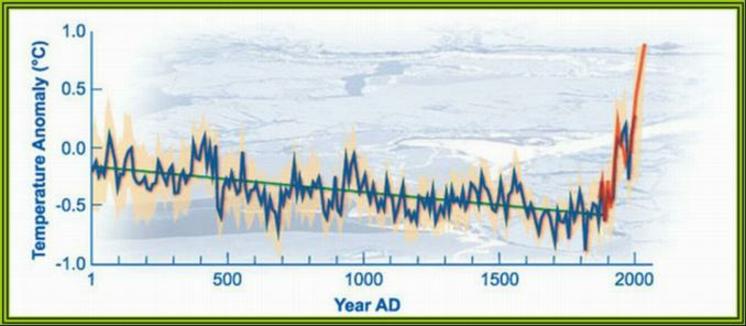From the Vancouver Sun
There was cheering news last week no matter which side you take in the climate change "debate." Self-styled skeptics couldn't help but be encouraged by a BBC report that just 71 per cent of people in the U.K. believe in climate change, way down from 92 per cent in 2005.
At the same time, the Boston Globe reported that, in the U.S., acceptance of the scientific evidence of global warming is on the rise: While the number of Americans who believe in climate change had dropped to 57 per cent in March (a 14-point decline over the previous 18 months), the Yale Project on Climate Change Communication recently found that the figure has bounced back up to 61 per cent.
This climate-science-as-horse-race reporting is interesting, but not always helpful. Rather than informing us about the issue -- advancing our understanding of climate change and its consequences -- these stories obsess about the politics, about the battle for public attention. And the sorry truth is that we (the public) have been losing in that battle for more than 20 years.
If you read either of our books ( Merchants of Doubt, by Naomi Oreskes and Erik M. Conway, or Climate Cover- up, by James Hoggan with Richard Littlemore), you'll find overwhelming evidence that the "debate" about climate change is neither accidental nor particularly scientific. The newer of these volumes, Merchants of Doubt, even puts a start-date on the campaign of climate change denial (1989) and dusts off the fingerprints of the earliest campaigners (the ideological brain trust behind the U.S.-based George C. Marshall Institute).
The 1990s also featured a series of expert and expensive misinformation campaigns launched by: the American coal industry, through the Western Fuels Association; the oil industry, through the American Petroleum Institute; and (villains in search of allies) the tobacco industry, through a Philip Morris-funded organization called The Advancement of Sound Science Coalition (TASSC). Google any of these and you can find original documents outlining public relations strategies to convince people that climate change is somehow in doubt.
Doubt mongering works for three reasons. First, nobody likes bad news. Cancer-scare stories often make the news, but they can't compete with the reports that drinking a couple of glasses a wine per day might be the cure.
Second, reporters honour the underdog, especially in the U.S., with its tradition of glorifying the heroic individual. If most of the world's best scientists agree that climate change is real and threatening, reporters feel bound to give air time to outlying "experts" who promote a contrarian argument. The third reason also speaks to journalistic bias: News, almost by definition, tends to consist of the unusual, the unfortunate or the out-of-the-ordinary. Just as they ignore planes that don't crash or crimes that don't occur, reporters pay more attention to accusations of wrongdoing than to subsequent reports of acquittal. Innocence isn't interesting.
That's why the story of e-mails stolen from scientists at the University of East Anglia got so much attention last November. It was fascinating to hear accusations that scientists were lying and cheating -- hiding data and conspiring to silence their critics. Less interesting, and thus less newsworthy, have been the reports (three major ones, so far) dismissing the accusations as baseless or overblown.
Thinking about this, it's hard to avoid a painful conclusion: We've been had. Self-interested and agenda-driven people have taken advantage of the best instincts of reporters (to balance their reports and to protect minority voices), and the best instincts of citizens in a democracy (to honour that diversity and to listen to "both sides").
Painting themselves as heroic dissenters and promoting long-discredited contrarian themes, professional deniers have insisted on equal time -- and they have used that time to slander scientists who are better at resolving complex technical issues than at playing politics with public relations people. Knowing that nothing in science can be proven absolutely, the deniers tell us to do nothing until we have absolute proof -- while they profit from the status quo -- and the problem continues to get worse.
Naomi Oreskes is a professor of history and science studies at the University of California, San Diego, and author of the science paper Beyond the Ivory Tower, the first formal survey confirming the scientific consensus about climate change. Richard Littlemore is freelance writer and consultant, a former Vancouver Sun editorial writer and current editor of the climate change website DeSmogBlog.com.
.
.
Welcome to By 2100!
This Blog is designed to be a Diary of Events illustrating Global Climate Change, and where it will lead.
Commentary is encouraged, but this Blog is not intended for discussion on the Validity of Climate Change.
Category Labels
- Climate Events (85)
- Climate Solutions (45)
- Videos (42)
- Climate Statistics (39)
- The Deniers (34)
- Humour (15)
- Basic Information (5)
Friday, June 18, 2010
Subscribe to:
Post Comments (Atom)
www.know-the-number.com
Our Climate is Changing!Please download Flash Player.

No comments:
Post a Comment